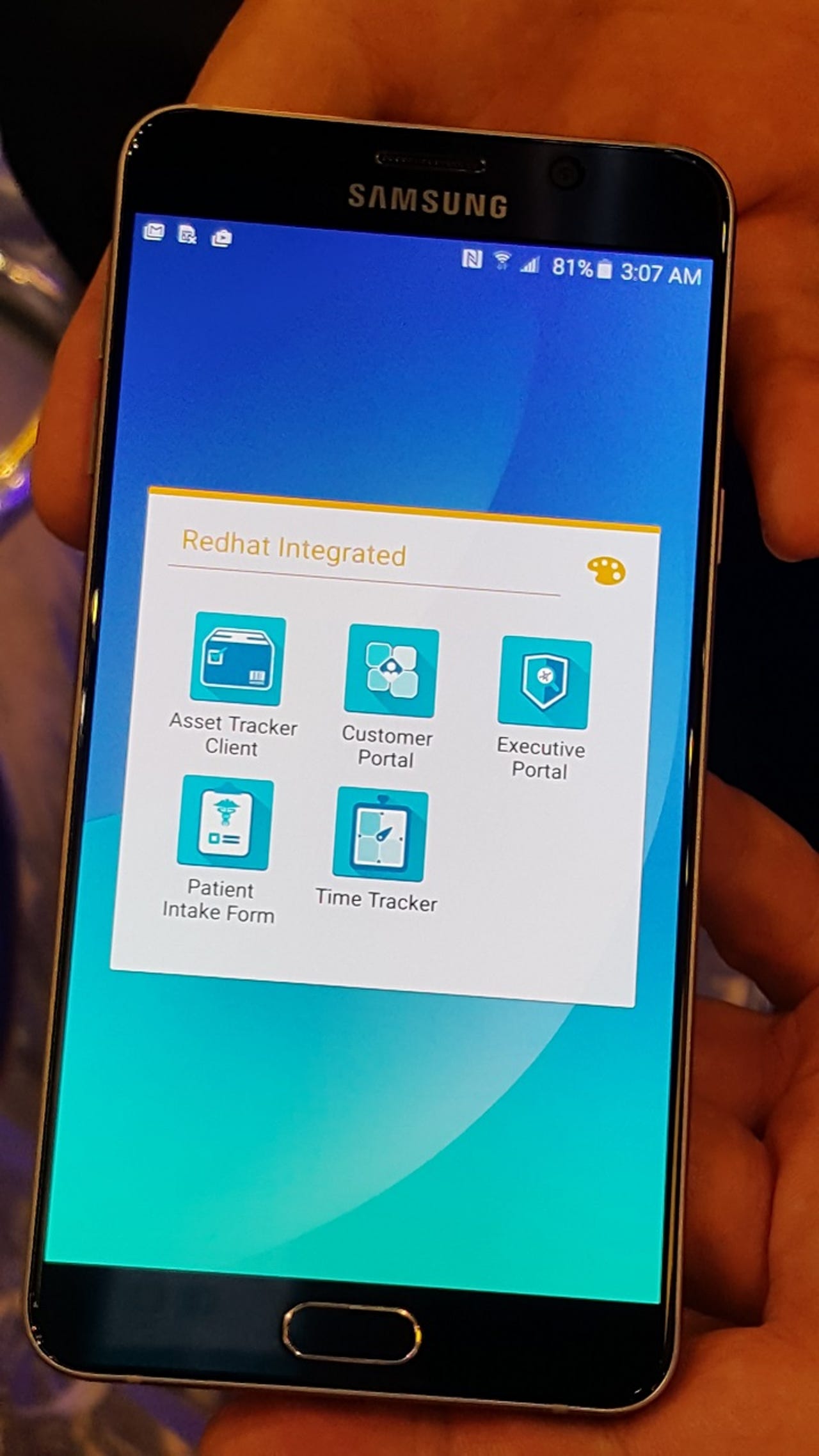Samsung's enterprise unit woos enterprise with custom apps

ORLANDO--Samsung's Enterprise Services unit has spent the last year building out staff, bolstering support and adding partners. Along the way, Samsung's business-to-business unit may have stumbled on its secret sauce beyond hardware via mobile apps that connect to custom back-end enterprise systems.
While the Apple and IBM partnership generate more headlines, Samsung's enterprise unit has been landing key partnerships with the likes of Red Hat.
We caught up with Gregg Ostrowski, vice president of Samsung's Global Enterprise Services unit, to get an update on the company's plans.
Among the key takeaways:
Samsung's partnership with Red Hat. At the Red Hat Summit in June, Samsung and Red Hat announced a strategic partnership that aims to meld mobile devices, Android security, mobile device management and Red Hat's middleware, mobile and cloud technologies in one stack. Red Hat owns FeedHenry, an enterprise mobile application platform, and the Samsung partnership fits well. For Ostrowski, the big win with the Red Hat partnership is that Samsung can use Android's flexibility, its Knox security knowhow and develop custom apps for enterprises because Red Hat connects to the backend data in corporations.
Red Hat and Samsung have a handful of pilots underway at enterprises with custom apps for asset tracking, patient data and other functions. "We have a modular approach and an SDK that allows enterprise developers to customize," says Ostrowski.
The importance of customized apps. To Ostrowski, custom enterprise apps can give Android momentum in the enterprise and land more deals and partnerships. Samsung Enterprise Services aims to give corporations base-case apps they can build on. On the hardware side, those custom apps can take advantage of Samsung features. For instance, a Samsung tablet can act as a kiosk and turn itself on when a person approaches it. The application uses facial recognition to come out of sleep mode. "One size does not fit all," said Ostrowski.
At the Gartner Symposium ITxpo, Samsung was demonstrating custom point-of-sale terminals for retailing, mobile banking applications and digital health applications. Samsung's aim is to court CIOs and attract them to its hardware and Android tools. Samsung execs will also highlight "wearable workflows" and how devices like smartwatches can be productivity tools.

Why apps? Three or four years ago the conventional wisdom was that HTML5 would be used as the bridge to multiple screens. The problem was that HTML5 didn't have the enterprise support in the field. Now enterprises are focused on two mobile platforms---Apple's iOS and Android with Windows 10 as a challenger.
Android in the enterprise. Ostrowski said that his group has alleviated enterprise concerns about Android via its Knox technology. Android's flexibility appeals to enterprises overall, but it's likely companies are going to support multiple platforms. One key selling point for Android is that deploying apps can be done without app store. What Android has lacked is enterprise applications to demonstrate what's possible. Ostrowski said those enterprise apps have been Samsung's focus. "The device gets you in the door, but the key part of what we do is to have business apps to demo and deploy," he said. "The enterprises care about the custom apps. We have to showcase capabilities not the number of apps."
The competition. Ostrowski said that the biggest competition for his unit is home-grown custom mobile applications. Samsung's focus needs to be on providing quick and easy developer tools and technology that can adapt on the hardware side. To some degree, Ostrowski has a point. Enterprise custom apps are the last frontier and most rivals have a different spin on the business. After all, Apple and IBM revolve around industry specific analytics applications. General business tools such as Salesforce and the like already have mobile components. Samsung's bet is that mobilizing the back-end systems via Android will sell well and move faster than the likes of SAP and Oracle, two companies that are also partners.
BYOD. The working theory 18 months ago was that Samsung's B2B efforts would gain from bring your own device plans. However, BYOD is being reeled in a bit as corporations start to issue more devices over compliance concerns. Samsung's bet is that it can win in the mobility device game and use Android's flexibility and partnerships to differentiate from Apple.
Related: